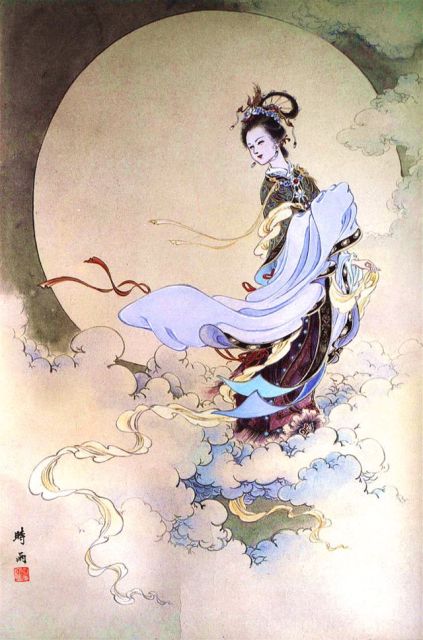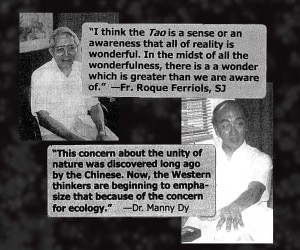For the Chinese, September comes with the sound of dice hitting the surface of porcelain bowls. It’s Mid-Autumn Festival season, and that only ever meant two things: mooncakes and Pua Tiong Chiu*.
Usually involving three pairs of dice, a porcelain bowl, and lots of fun prizes, “Pua Tiong Chiu” roughly translates to “gambling with the Mid-Autumn,” and Chinese households and establishments around the Philippines try their hand at their Mid-Autumn luck through rolling the festival dice. Other than Pua Tiong Chiu, of course, this harvest festival is celebrated with mooncakes. They embody centuries’ worth of culture and heritage and carry with them both myth and legend.
For most of us, this is all the festival ever entailed. Everyone can get so wrapped up in the prizes and mooncakes that they lost sight of the value imbibed in the festival’s heritage. More likely perhaps, they were never even aware of it in the first place. For those of us who ever took home a prize and relished the mooncake’s taste, perhaps it’s time we understood exactly what it is we’re commemorating.
In ancient China, the splendor of the moon filled the verses of poems. Painters and poets, bards and soldiers, kings and farmers alike marveled at what looked like a porcelain surface suspended in the starlight. Eventually, the 15th day of the 8th lunar month was forever commemorated as the day of the grandest harvest festival all across the land. 中秋節 (Zong Qiu Jie) or the Mid-Autumn Festival would go down in the annals of Chinese history as an intangible cultural heritage that would transcend generations. A cultural affair as much as it was a religious one, the Mid-Autumn Festival had become synonymous with incense, lanterns, family, games, lavish performances, and of course, mooncakes.
Did you ever wonder why, though? Legend has it that this Chinese tradition of offering to the moon stands for more than what it seems.
The Legend of the Woman in the Sky
Ten suns inhabited the blue expanse overhead. The air was dry and heavy, the worst kind, and it tried to choke the life out of everything it touched. Life was difficult for the villagers. Among those who were fed up was the hero, Hou Yi. He rose to the occasion and shot down nine of the ten suns plaguing the land, his bow and arrow as mighty as he. The village was then visited by a light breeze for the first time, and it carried the word of Hou Yi’s revolutionary feat across the land. People, both high and low, traveled to set their eyes upon the mighty hero. Among these travelers was Peng Meng.
Later, Hou Yi would cross paths with a beautiful woman with skin as pale as porcelain. Chang E was her name. She was beautiful and kind, and she made Hou Yi the most peaceful man under the sun.
One day, Wang Mu, the queen of the heavens, came down from her seat and presented Hou Yi with the Elixir of Life. A drop of it on his tongue would mean immortality. Hou Yi, a hero on earth, would become a god and would forever dwell in the heavens, above everyone else, including Chang E. Instead of consuming it, Hou Yi walked along on the dirt road towards home and presented the Elixir to Chang E as a gift for her to keep.
Peng Meng, however, witnessed this exchange and coveted immortality for himself. Three days later, while Hou Yi was out hunting with his bow and arrow, Peng Meng broke into their home and demanded the Elixir from Chang E. In a desperate effort to preserve the honor of her husband’s gift, she drank the Elixir and became a goddess. And because of her great love for her husband, the Elixir was only able to draw her only as far as the moon, the closest place to earth on the heavens.
Hou Yi, despite his anguish, was still able to see his great love’s face on the moon. He prepared her favorite food, now known as the mooncake, on an altar and offered it to her in one last attempt to make her happy. And the villagers, upon hearing of Chang E’s fate, soon followed suit.
The myth that is the first Mid-Autumn Festival was about the purest love and sacrifice. When the Chinese offer their hard earned food, it is towards these virtues imbibed in their very core as a people. Beyond culture and heritage, beyond myth and legend, it is these virtues, spanning generations upon generations, that the Mid-Autumn Festival celebrate.
As we roll the dice and hope for the best, as we enjoy the mooncakes that is Chang E’s favorite food, let us not forget the essence behind this festive occasion: a selfless act of sacrifice and love. And before we eat the festival’s harvest, let us take a look at the people we’re about to share it with, and ask ourselves: how much are we willing to give for the ones we love? Today, as we rejoice in the company of family, delight in our games and prizes, and relish the food at our table, let the myth of selfless love take hold of the festival which it spawned. Today, even after the festival is over, ask yourself, are the virtues of love and sacrifice still relevant in your life?
*Pua Tiong Chiu = “Gambling the Mid-Autumn”
Written by Chynna Ramos.
Artwork by Shi Yu.




